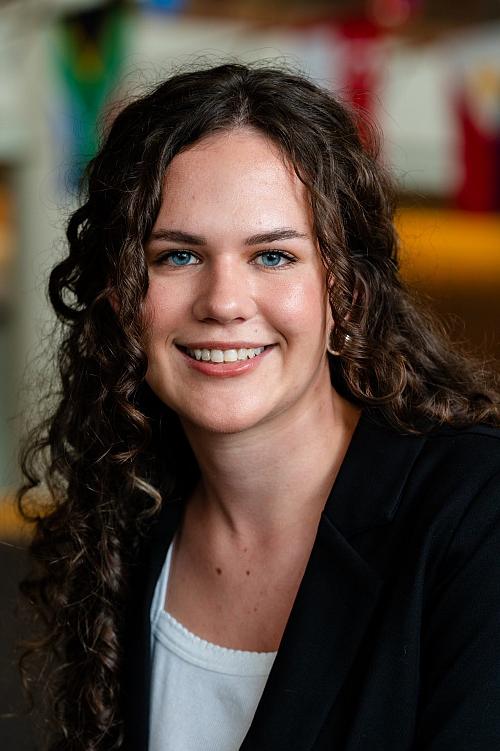Exploring public health law
Louise Claussen’24 explored public policy through a health lens at the University of Minnesota’s Humphrey School of Public Affairs through the Junior Summer Institute. She found that her experiences outside the classroom were just as integral to her education as anything inside it.

A senior and double major in economics and political science from Rockford, Ill., Louise Claussen’24 has been planning for years to pursue a law degree after college. She took a chance on a fellowship at the University of Minnesota’s Humphrey School of Public Affairs last summer through the Public Policy and International Affairs (PPIA) program. Now, after specializing in public policy design and analysis there, her vision of the future is more clear, but also a little more complicated.
Like Martu Kollie’s experiences at PPIA, Louise found her program challenging and her experiences irreplaceable. Her condensed, graduate-level classes in policy formulation and analysis, economics, statistics, and research design delved into tough topics like racial justice, climate change, and global inequality.
While it was difficult to juggle five subjects over seven weeks, Louise’s ability to persist shone through in her varied class projects. She wrote an op-ed about political polarization on college campuses and conducted her own research within sex trafficking survivor communities for a qualitative methods project. As an economics major, she had an edge in her stats class over her cohort, but also was excited to learn a new research software program.
Many of the public policy issues she’d touched on in her political sciences courses came to life, particularly related to public health. She wrote a policy memorandum, “Combatting Disparate Suicide Rates Among Youth in American Indian and Alaskan Native Communities,” which she later presented at a poster session at the Humphrey School. It was a moving experience.

“Writing it was a really rewarding process,” she says. “We worked in groups on this large-scale research project which mirrors how policy memorandums are written and recommended. It was imperative to the success of this project that my group was able to work together effectively, and we did a good job at communicating and distributing the work evenly. I also think that working together increased the quality of our work; the diversity of perspectives pushed us to devise innovative solutions to the issue we were tackling.
“I have been interested in public health for a long time, and while this project focused specifically on policy recommendations, I was able to do a lot of research on the existing laws that impact the mental health of Indigenous communities, which was an interesting way for me to gain more insight from a legal perspective. Health law is definitely a field that I could see myself working in in the future, and this project encouraged me to do more research into what a career in health law would look like.”
Louise didn’t only learn a lot in the classroom. She networked with professors, visiting activists and scholars in the field, like the Mandela Fellows, a group of young African leaders and policy experts invited to the U.S. for leadership training and student discussions. She became close friends with many students in her cohort, living with them in dorms, attending concerts, and going on hiking trips and museum excursions in the Twin Cities. She still talks to many of them daily, months after the experience.

“There were so many students with diverse backgrounds and different life experiences, and I think the diversity of perspectives that I was exposed to was one of the most rewarding parts of the whole program,” Louise says. “While most students there were focused on pursuing a graduate degree in public policy, there were a few other students who also were planning on attending law school. It was motivating to be able to study with other members of my cohort for the LSAT and to be able to talk to them about the application process and their plans for what type of law they wanted to practice.”
Louise has held onto her plan to go to law school after graduating from Beloit, even as her JSI program pushed her towards graduate studies in public policy and global affairs. But now, she thinks she may want to specialize her law studies in public policy or human rights.


